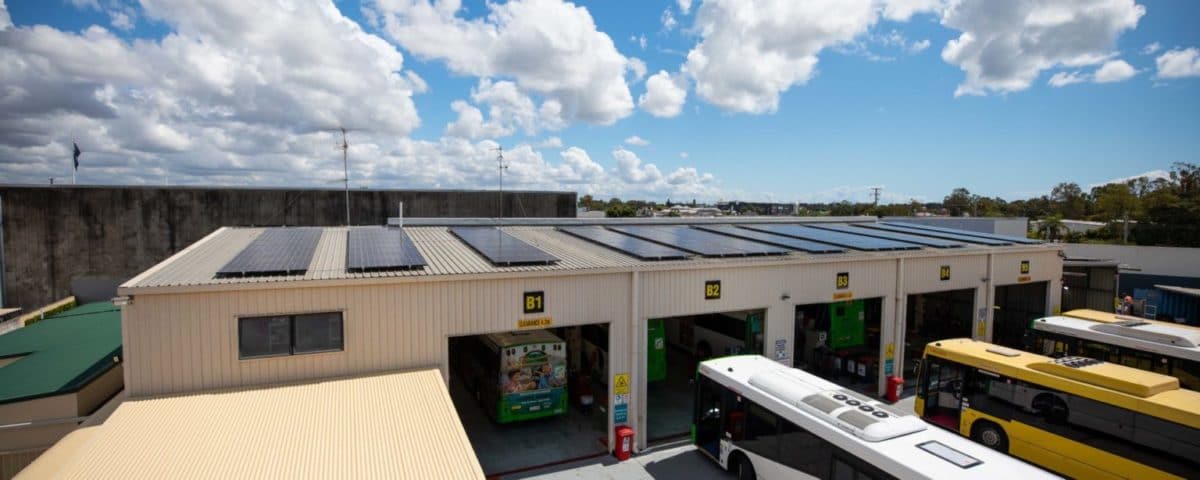Transdev has continued its transition to zero-emission vehicles in Australia, adding two more electric buses to its fleets in Brisbane and Sydney, after Melbourne-based bus manufacturer Volgren delivered four of its electric vehicles to the public transport operator earlier this month.
Transdev, which operates public transport systems in 17 countries, has already introduced five new electric buses to its fleets in Brisbane, Sydney and Melbourne. Transdev Australasia CEO Luke Agati said the Brisbane buses would be 100% powered by sustainable solar energy from a rooftop solar facility and battery storage system at its Capalaba depot.
The company said the PV-powered “green mobility megawall” can generate up to 159,000 kWh of renewable energy annually and is combined with 135 kWh hours of battery storage.
“Averaging more than 280 days of sunshine per year, Queensland well and truly lives up to its reputation as the Sunshine State, and we are excited to be bringing this clean, green, modern vehicle to Brisbane,” Agati said. “Globally, Transdev is a leader in zero-emissions mobility and work is underway to introduce new fleet and innovations to Australia and New Zealand over the coming months. Research, testing and design for our future zero-emissions fleet will be led from our newly opened Maintenance and Engineering Centre of Excellence, also based at our Capalaba depot.”
The new electric buses were built at Volgren’s factory in Melbourne. They used all Australian parts, other than the chassis and the 348 kW lithium phosphate battery, which were manufactured by Chinese company BYD.
Popular content
Volgren Engineering Manager Brenton McCallum said the 39-seat buses have an average range of 250 km over the life of the battery, and up to 300 km earlier in its life. However, the Volgren bus, which is being tested in Melbourne in partnership with the Victorian state government, has exceeded that estimation, travelling nearly 1,000 km on just two charges.
Agati said the decision to manufacture the buses locally was an acknowledgement of the skill and expertise of Australia’s local bus manufacturing sector.
“Australia is on the cusp of an e-mobility revolution in public transport,” he said. “We want to see more Australians travelling on zero-emissions electric and hydrogen-powered buses, and we want Australian bus manufacturers to lead the journey with us.”
The delivery of the new buses comes just weeks after the first fully Australian designed and built electric bus was put to the test in Sydney. The trial is part of the New South Wales government’s push to replace all of its 8,000 diesel buses with electric ones by 2030.
The Victorian government is also accelerating its switch to electric buses. Last year, it announced AUD 20 million ($15.2 million), three-year statewide trial aimed at transitioning to a zero-emission bus fleet.
This content is protected by copyright and may not be reused. If you want to cooperate with us and would like to reuse some of our content, please contact: editors@pv-magazine.com.



1 comment
By submitting this form you agree to pv magazine using your data for the purposes of publishing your comment.
Your personal data will only be disclosed or otherwise transmitted to third parties for the purposes of spam filtering or if this is necessary for technical maintenance of the website. Any other transfer to third parties will not take place unless this is justified on the basis of applicable data protection regulations or if pv magazine is legally obliged to do so.
You may revoke this consent at any time with effect for the future, in which case your personal data will be deleted immediately. Otherwise, your data will be deleted if pv magazine has processed your request or the purpose of data storage is fulfilled.
Further information on data privacy can be found in our Data Protection Policy.